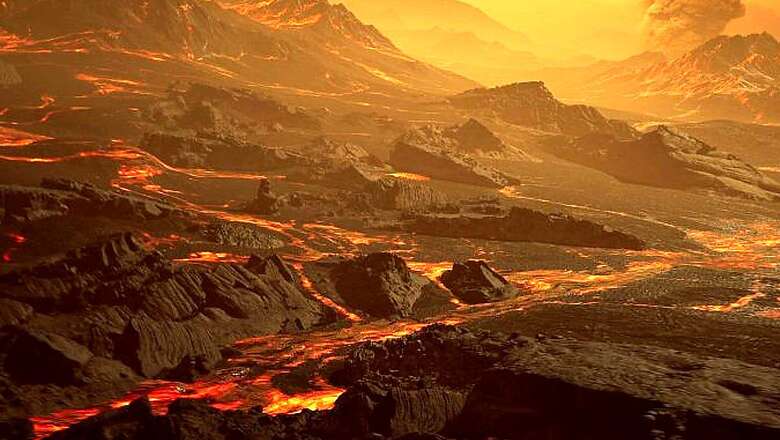
views
Scientists with the CARMENES consortium have discovered a very interesting candidate that’s not too far away in outer space – a planet that falls within the definition of a ‘super Earth’, is practically next door from us, and even has a thin enough atmosphere with a unique atmospheric pressure composition. Orbiting dwarf red star Gliese 486, planet Gliese 486b has struck out to scientists because of its super close proximity to us, and the fact that unlike planets of its kind, it actually has a much thinner atmosphere that can be better studied to understand life supporting atmospheric compositions.
The downside, though – Gliese 486b orbits very, very close to its star. In fact, it completes one revolution around the star once every 1.5 days. It is therefore tidally locked, meaning that only one side of the planet always faces the heat, literally. Observed by astronomer Trifon Trifonov at the Max Planck Institute for Astronomy and published in Science journal yesterday, Gliese 486b has been found to be rocky, with a mean density comparable to Earth or Venus. Its mass is about 2.8 times that of Earth, and the planet itself is about 30 percent larger than Earth.
However, while all these factors are great, Gliese 486b still sports surface temperature of 430 degrees Celsius – too hot to sustain life the way we know it. However, the planet is only 24 light years away from us – that’s literally a stone’s throw away from Earth in space distance parlance. It also appears to have an atmosphere that is likely much thinner and applies far lesser pressure than, say, Venus’ atmosphere. Given that Gliese 486b is most likely a burning hot mess anyway, it will be interesting for scientists to use the likes of James Webb Space Telescope and the Extremely Large Telescope to observe the planet further, and make notes on the circumstances in which these planets develop – and if, crucially, they could have supported life at some point of time.
Gliese 486b is only one of the many super Earths that we already know of, but it is certainly among the most intriguing from the scientific point of view. Going forward, it will be interesting to see if the planet does indeed hold answers to the evolution of life and planets in solar systems.
Read all the Latest News, Breaking News and Coronavirus News here



















Comments
0 comment